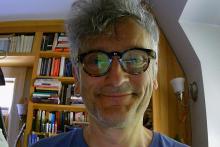Fanon, Violence, and the Struggle Against Colonialism12
Jan 29, 2018Frantz Fanon was quite a provocative fellow. In his most influential work, The Wretched of the Earth, Fanon says that “For the colonized, life can only materialize from the rotting cadaver of the colonist.”



